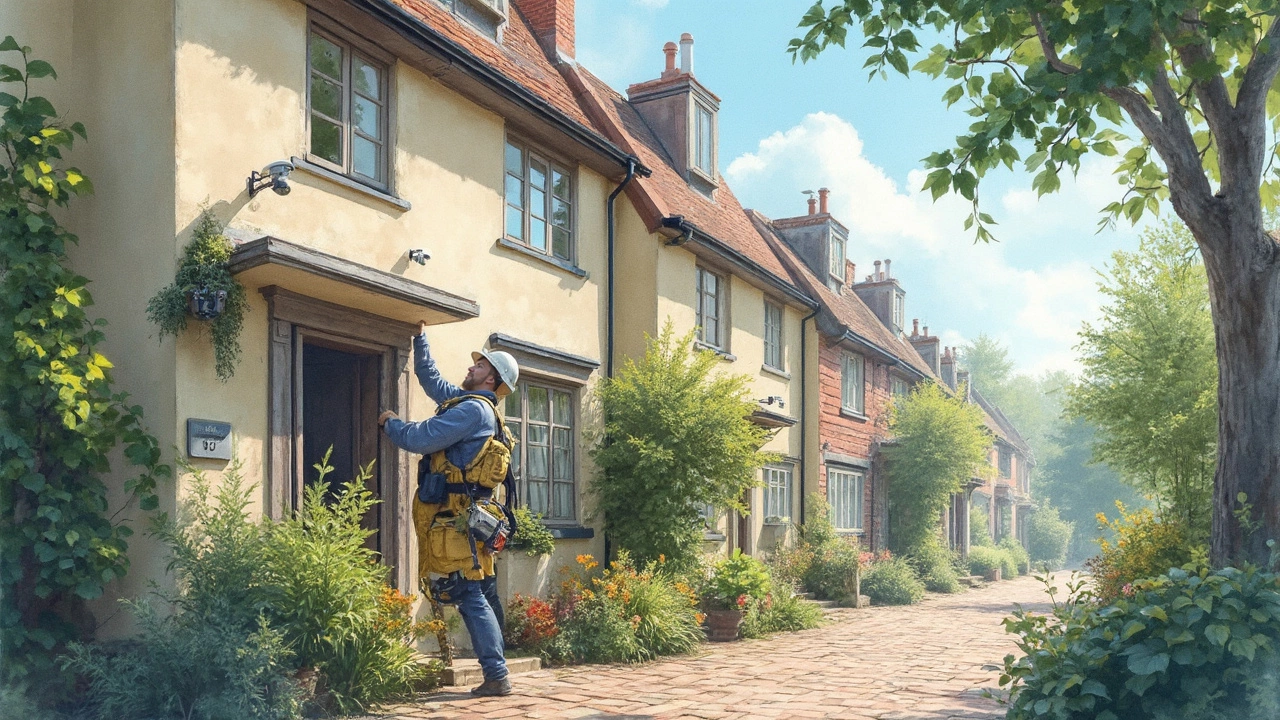If you’re thinking about adding CCTV to your home or business, the first question is always the price tag. The good news is that CCTV isn’t a one‑size‑fits‑all expense – you can build a cheap DIY kit or go for a high‑end managed solution. In this guide we break down every cost component so you can see exactly where your money goes and how to keep the total bill in check.
Camera type. Basic 720p indoor cameras can be as low as £30 each, while 4K outdoor models with infrared night vision often top out at £150‑£200. Choose the resolution that matches the area you need to watch – you don’t need 4K for a simple driveway view.
Wired vs wireless. Wired systems require running coax or Ethernet, which adds labour costs (usually £50‑£100 per camera). Wireless kits save on cabling but may need extra batteries or solar panels, bumping the price by £20‑£40 per unit.
Number of cameras. More cameras mean bulk discounts on hardware but also higher installation time. A typical 4‑camera package costs around £800‑£1,200 all‑in, while a 10‑camera setup can run £2,000‑£2,800 depending on specs.
Storage solution. Local NVR (network video recorder) boxes start at £150 for 4‑channel models and rise to £500 for 16‑channel units with RAID backup. Cloud storage is subscription‑based – expect £5‑£15 per month per camera after any free tier ends.
Power and backup. Cameras draw about 5‑10 W each. Over a year that’s roughly £10‑£25 per camera on electricity. Adding a UPS (uninterruptible power supply) costs £50‑£150 and protects your system during outages.
Additional features. Motion alerts, AI person detection, and zoom lenses are optional add‑ons that can add £30‑£80 per camera. Decide early if you need those upgrades to avoid surprise costs later.
Start with a clear map of the areas you want to cover. Sketching a rough layout helps you count the exact number of cameras and avoid buying extra hardware you’ll never use.
Shop around for bundle deals. Many retailers offer a discount when you buy a kit of three or four cameras plus an NVR. Compare that to buying each piece separately – you can save up to 20%.
Consider a hybrid approach. Install wired cameras at high‑risk spots (front door, garage) and use cheaper wireless units for secondary zones like the garden or shed. This mix often balances performance and cost.
If you’re handy, you can do the mounting yourself. The biggest part of a professional install is labour, so DIY can shave £200‑£400 off the total bill. Just make sure you follow local regulations – in the UK you need to respect privacy laws and, for outdoor cameras, avoid pointing directly at neighbours’ windows.
Plan for future expansion. Choose an NVR that supports more channels than you need now. The extra upfront cost (£100‑£150) is cheaper than replacing the recorder later.
Finally, factor in maintenance. Cameras exposed to weather need occasional cleaning and maybe a new weatherproof seal every few years. Budget about £50‑£100 annually for upkeep.
By breaking down each element – camera specs, wiring, storage, power, and optional features – you can build a CCTV system that fits your security needs without blowing your budget. Whether you go for a £600 starter kit or a £3,000 full‑scale installation, knowing where every pound goes makes the investment feel a lot clearer.

Ever wondered if electricians can handle CCTV installations? You're not alone! Electricians are usually skilled in many areas, and fitting CCTV systems is often one of them. However, the cost varies, and knowing what to expect can save you a headache. Here's a practical guide to help you navigate the intricacies of CCTV installations by electricians.